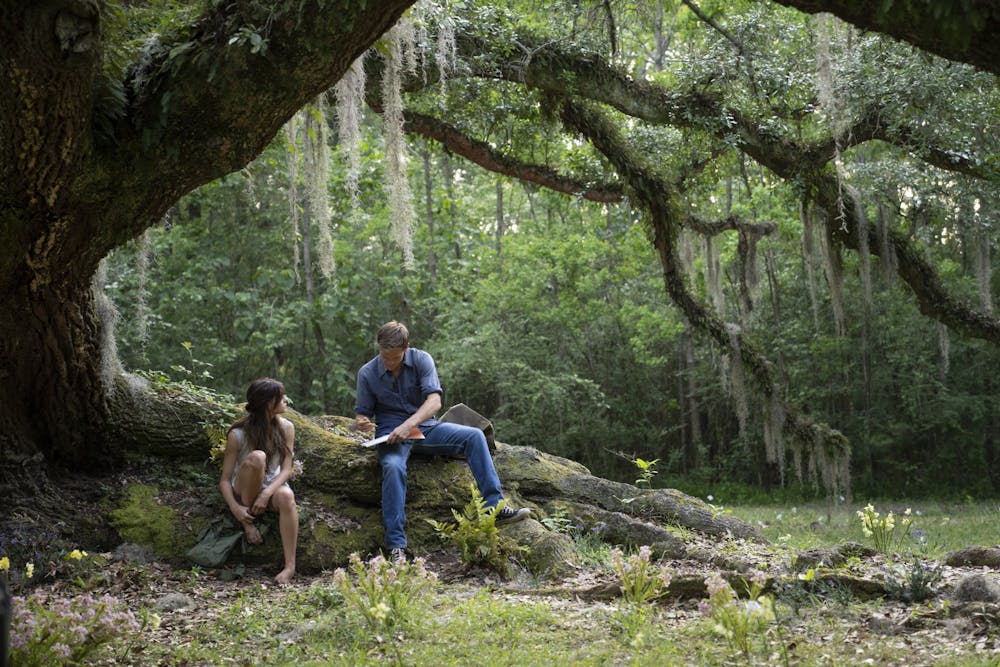Released in the U.S. on July 15, 2022, “Where the Crawdads Sing” neatly repackages Delia Owens’ bestselling coming-of-age mystery of the same name. The film entices audiences from the start with skillful performances and fine contemplative visuals that compliment the nuanced story.
From the outset, the film will certainly keep you on the edge of your seat, even if you know the ending well, which harbors a delightful twist. There’s no imbalance between the coming-of-age and murder mystery aspects of the film — these two sides of the story intertwine and firmly pose the question of if and when murder may be justified.
A highlight of the film was the exceptional Daisy Edgar-Jones, who wonderfully portrayed the unbreakable lead, Kya Clark. Edgar-Jones takes the screen by storm, capturing the attention of the audience and holding it in her palm — doling out clues and evoking uncertainty with what looks to be great ease. Additional highlights are Taylor John Smith and Harris Dickinson who play wonderfully as Tate and Chase, the two men she courts through the movie.
With this prime assortment of actors and crew, failure would’ve been a feat; the success of the film felt inevitable. Though the majority of critical reviews have been negative, it seems to be a result of the watered-down nature of Kya’s wild strength and interests — this cause for critique is more than reasonable, but certainly not cause to write off the strengths of the entire project.
Inevitably, aspects of the book were lost in translation. The moments chosen and discarded were, for the most part, well selected. Through lingering shots of the peacefully lively marsh, the sweet space fashioned in Owen’s novel is evoked, enhanced by Edgar-Jones’ perfect subtlety.
Though I found the movie to be a real treat, I was disappointed by the exclusion of what should have been the integral shots of Kya in the marsh: watching, listening and sketching. These beautiful moments are instead summed up with drawings hung on walls and shots of her books in shop windows rather than savored as they could have — and really should have — been. Instead of reveling these moments, the filmmakers instead doted on an obnoxiously high number of sex scenes.
With this all in mind, the film approaches issues of sexual assault and abuse skillfully, though I still found it to be difficult at times. If this might be an issue for you, I would recommend passing on the film until you can scrub through the well-done (albeit difficult) scenes from the comfort of your own home.
My only real issues were with the awkward CGI heron at the opening and the strange sexualization and gauzy delicateness directed upon the inherently rugged, resilient marsh girl. I couldn’t quite look past these shortcomings, but I could surely accept them and found the film to be pleasant nonetheless.
And of course, Taylor Swift’s song “Carolina,” written for the film, was the perfect way to reflect on the outcome of the film as the credits rolled. The song captures sonically and through lyrics the essence of Kya’s experience in a very “Folklore” way.
All in all, “Where the Crawdad Sings” is a lovely watch, and I’ll continue to recommend it to anyone who will listen to me.
Natalie Jude is the design director for the Daily Lobo. They can be reached on Twitter @Natalaroni or at designdirector@dailylobo.com
Get content from The Daily Lobo delivered to your inbox






